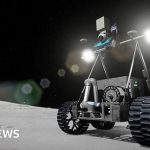
Introduction
Education has always been a fundamental pillar of society, shaping the minds of individuals and driving progress. In recent years, deep learning innovations have revolutionized the way we learn and teach, enhancing the learning experience for students across the globe. This article explores the transformative impact of deep learning in education and how it has revolutionized traditional teaching methods.

Personalized Learning
One of the major benefits of deep learning in education is personalized learning. Traditional classrooms often follow a one-size-fits-all approach, where teachers deliver the same content to all students regardless of their individual needs and learning styles. Deep learning technologies, such as adaptive learning algorithms, now allow for personalized learning experiences. These algorithms analyze students’ strengths, weaknesses, and learning patterns, enabling the delivery of tailored content and recommendations to maximize their learning potential.

Interactive Learning
Deep learning innovations have also paved the way for more interactive and engaging learning experiences. Virtual reality (VR) and augmented reality (AR) technologies have transformed how students interact with educational content. VR enables students to immerse themselves in simulated environments, enhancing their understanding and retention of complex concepts. AR, on the other hand, overlays digital information onto the real world, enabling students to interact with virtual objects and explore subjects in a more hands-on manner.

Collaborative Learning
The traditional model of education often revolves around individual learning, where students work in isolation. However, deep learning innovations encourage collaborative learning, fostering teamwork and communication skills. Online platforms and tools allow students to collaborate on projects, share ideas, and provide feedback to each other. This approach not only enhances their understanding of the subject matter but also prepares them for the collaborative nature of the modern workforce.

Efficient Assessment
Deep learning technologies have revolutionized the assessment process in education. Traditional exams and assignments can be time-consuming and may not fully capture a student’s true abilities. With the advent of deep learning, automated assessment tools can provide more efficient and accurate evaluations. Natural language processing algorithms can analyze written responses, while machine learning algorithms can evaluate numerical or coding assignments. These tools save teachers time, provide immediate feedback to students, and offer insights into their progress and areas of improvement.
Conclusion
Deep learning innovations have transformed education, enhancing the learning experience for students worldwide. Through personalized learning, interactive experiences, collaborative learning, and efficient assessment, deep learning technologies have revolutionized traditional teaching methods. As we continue to embrace these innovations, the potential for further advancements in education is immense, opening doors to a more inclusive and effective learning environment.





